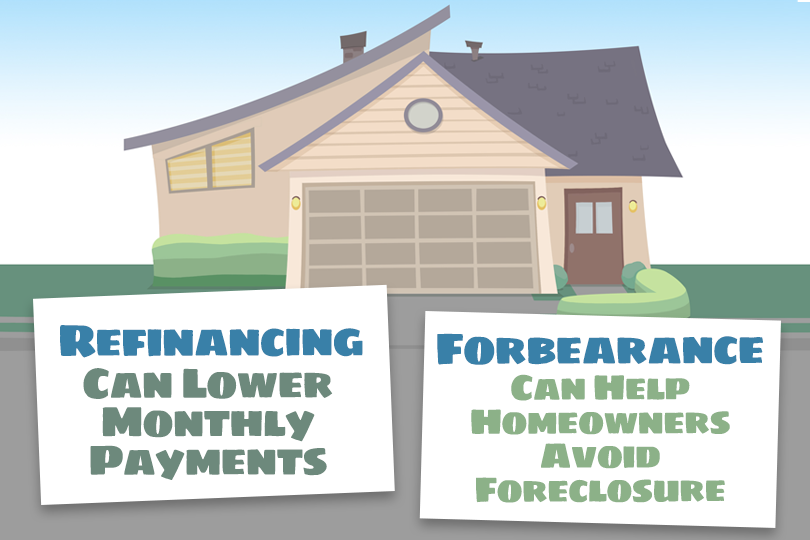The Difference Between FHA Loan Refinancing and Loan Forbearance

If you have an FHA mortgage and get into financial trouble that makes it difficult to keep up with your current home loan payments, you have several options to consider, refinancing and forbearance are two important ones.
Should you seek a loan forbearance or try to get an FHA refinance loan instead? A lot depends on how soon you act once you know you may have financial difficulty. The sooner you act the more options you have.
Loan forbearance is sometimes necessary and can help you avoid loan default and/or foreclosure. The Consumer Financial Protection Bureau (CFPB) official site describes loan forbearance as an agreement between you and your lender that allows you to temporarily pay your mortgage at a lower rate or there may be an option to temporarily stop paying your mortgage.
Why is this remedy needed? Many reasons may qualify such as a pandemic-related reduction in income, or this help may be needed in cases where a homeowner has had an injury or illness or has been the victim of a natural disaster.
There are some features of loan forbearance that do not apply to a refinance loan, which is why it’s good to compare the options. You may find one choice is more appropriate in your situation. One big difference? Loan forbearance is strictly meant to keep you from defaulting on the loan. Refinancing is a choice you can make at practically any time and does not require you to have difficulty with the mortgage as a qualifying circumstance.
With forbearance, there is no appraisal or credit check; it’s a modification to the existing loan. Not so with FHA refinancing, which we’ll discover below.
A refinance loan is an option available in a range of circumstances. It’s not just for those trying to save their homes but it can be a useful tool to do so. No matter what your motivation for refinancing, If you need a lower payment and have an existing FHA mortgage, an FHA Streamline Refinance loan could be the right choice if you’re trying to save your house.
How does it work? Your FHA refinance loan replaces the old loan with a new one. That means a new loan term, loan limit, and may also include a different monthly payment amount. Some FHA refinance loans don’t require a new credit check. They may also not have an FHA-required appraisal. This is true of the FHA Streamline Refinance loan program. However, if you are applying for FHA Cash-Out Refinancing? Expect to have both a new credit check and appraisal.
Loan forbearance and refinancing are two tools you can consider using to avoid loan default on your FHA mortgage. Talk to your loan servicer as soon as you can about these options and how best to use them.
------------------------------
RELATED VIDEOS:
Don't Skip the Home Inspection
Bigger is Better With a Jumbo Loan
Insuring Mortgages With the FHA Funding Fee

Do you know what's on your credit report?
Learn what your score means.







